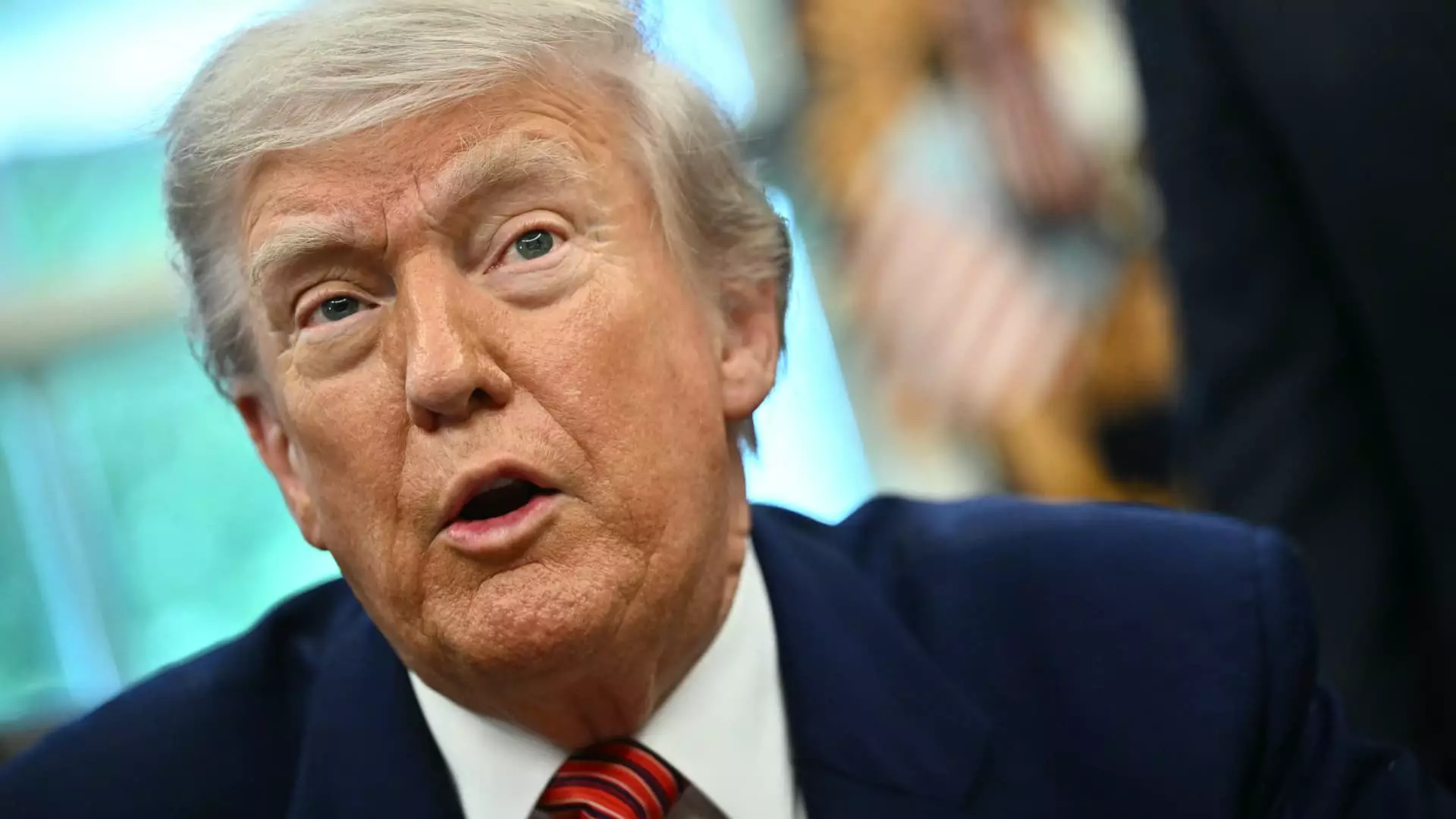In a fervent commencement address at West Point, Donald Trump crafted a narrative that intertwined military pride with an overt puffery of his own administration’s actions. The former president stood before budding officers dressed in their ceremonial uniforms, proclaiming them the heralds of America’s “golden age.” This framing of the graduates as the saviors of an idealistic vision is not merely flattering; it is emblematic of a leader eager to draw connections between national identity and personal legacy. Soldiers are not just learning; they are being conscripted into a mythos of greatness that often leans heavily on a revisionist history that glorifies military might while obscuring the ethical quagmires that accompany such power.
America First: A Double-Edged Sword
Trump’s “America First” mantra continues to dominate discussions around military interventionism. By emphasizing the military’s role in “dominating” rather than collaborating, Trump crafts a worldview that straddles the line between patriotism and isolationism. The glorification of American military superiority, particularly the claim that current officers belong to the “greatest and most powerful army” ever, raises serious questions about the implications of such hubris. What does it mean to be “respected” by the global community when that respect is predicated on fear rather than genuine diplomacy? The alluring allure of military might disguises a dangerous sentiment—one where might makes right and where softer diplomatic art may be discarded in favor of heavy-handed tactics.
Reconstruction of Military Values
Trump’s disdain for diversity, equity, and inclusion (DEI) programs in military academies reveals an unsettling trend within the military ethos—one that prioritizes uniformity over understanding. This ideological purge, as noted in Trump’s remarks, indicates a shift away from embracing the rich mosaic of cultures and experiences that could enhance tactical and ethical considerations in modern warfare. The elimination of cultural clubs at West Point paints a disconcerting picture for the future of military officers’ development, implying that singular narratives thrive at the intersection of power and an exclusionary vision of American identity. Labeling political training as “divisive” is a convenient way to dismantle critical discourse, shielding young leaders from the complexities and nuances of the society they aim to protect.
Historical Amnesia and National Engagement
Trump’s critique of “nation-building” initiatives underscores an alarming historical amnesia about the motivations behind such endeavors. By casting previous administrations as engaged in futile quests for global goodwill, he positions himself as a pragmatic warrior focused solely on national interests. However, this oversimplification ignores the myriad reasons behind American military presence abroad. If the military’s role is reduced to annihilation rather than fostering stability, we risk brewing future conflicts that will echo in the halls of history—a refrain of failure repeated anew. The choice to view international relations through the lens of conquest disregards the potential for genuine partnerships, eroding America’s standing as a global leader based on shared interests rather than mere strength.
In this charged environment, the complexities of military service become a potent symbol—a reflection of the broader societal dynamics that both inspire and haunt America’s identity. The graduates at West Point may well find themselves navigating a turbulent landscape that demands more than just adherence to a patriotic ideal; it requires a deep understanding of humanity, responsibility, and ethical considerations that drive true leadership.

